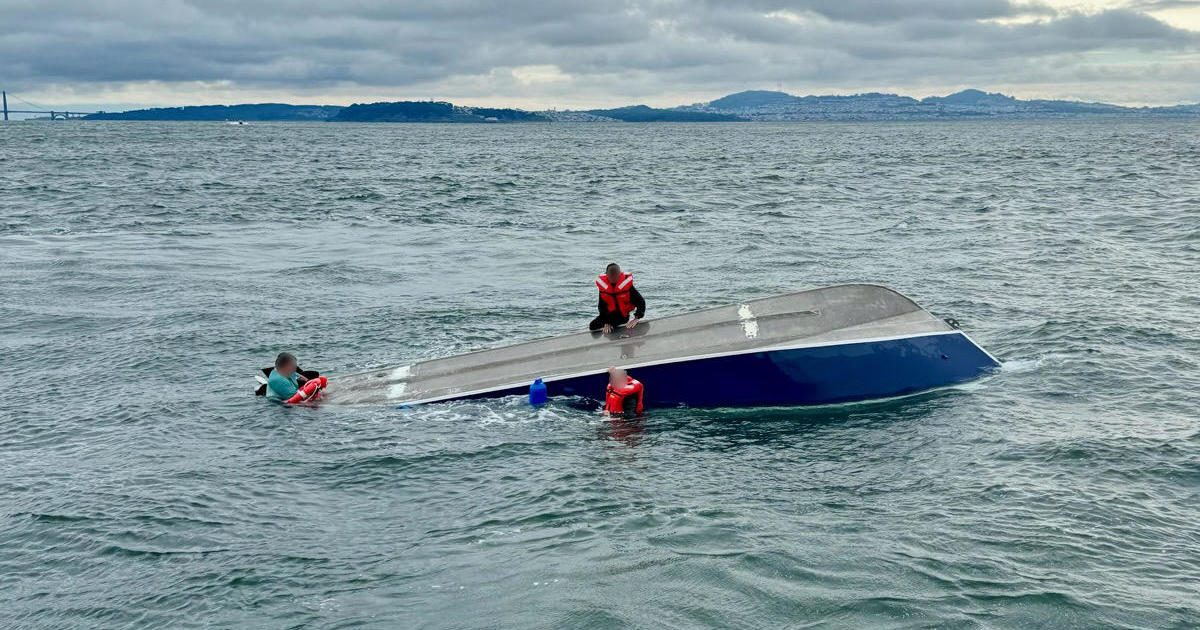Cause of Death Still Unknown for Gray Whale That Washed Up at SF's Ocean Beach
SAN FRANCISCO (CBS SF) -- Experts with the Marine Mammal Center on Tuesday said they have yet to determine a cause of death for a gray whale that washed ashore at San Francisco's Ocean Beach this weekend.
Scientists from the Center as well as from the California Academy of Sciences investigated the mammal's death with a necropsy Monday afternoon. According to a release issued by the Sausalito-based Center, the team took a variety of samples for testing "to hopefully shed light on this whale's unique story."
"Gray whales are sentinels for ocean health so performing these investigations is essential to better understand how human activity and changing environmental trends are impacting this species," said Director of Pathology at the Marine Mammal Center Dr. Pádraig Duignan. "While this whale's death remains a bit of a mystery, the high number of dead gray whales in the San Francisco Bay Area reinforces the need for us to continue to perform both observational research of live whales as well as necropsy investigations so that this critical data can be shared with key decision-makers."
During the necropsy, scientists determined the whale was a 45-foot adult female in average body condition based on the fat stores and blubber layer. The team also noted the whale was in relatively fresh condition based on the quality of the skin, internal tissues and organs. While scientists found multiple fractured spinal vertebrae, the lack of bruising and hemorrhaging to nearby tissue indicated the animal was most likely hit by a ship after it had already died of another cause.
The scientific team additionally noted that the whale had very minimal contents in its stomach, saying it was unclear why the adult female was migrating north to cool, food-rich Arctic waters so late this season. Gray whales do not have a calf every year and typically, when not accompanied by a calf, adult females migrate north early.
There have been elevated numbers of dead gray whales washing ashore in poor body condition since early 2019 across the species' entire migratory range, the release said. The numbers led the National Oceanic and Atmospheric Administration (NOAA) to declare an Unusual Mortality Event (UME) that is ongoing. Malnutrition, entanglement and trauma from ship strikes have been the most common causes of death in whales identified by the Center's research team in recent years.
"Adult females with calves are usually the last to migrate north to the summer feeding grounds in Alaska. However, this adult female did not show signs that she had recently nursed a calf," Senior Collections Manager of Birds and Mammals for the California Academy of Sciences Moe Flannery said in the release. "We are hopeful that samples taken during the necropsy will shed some light on the reasons behind her late journey north and any potential ailments that may be affecting the gray whale population."
Researchers from the Center said they have observed increased numbers of gray whales in the San Francisco Bay this spring. Gray whales stayed for longer durations as a layover on their migration than in previous years and were also documented feeding in the Bay by scientists from the Center.
Researchers want to reminded boaters and people on the water that it is critical to keep a safe distance from whales and report sightings to the Center's hotline at 415-289-SEAL (7325). All marine mammals are federally protected, and the public should not approach any whale, alive or dead.




